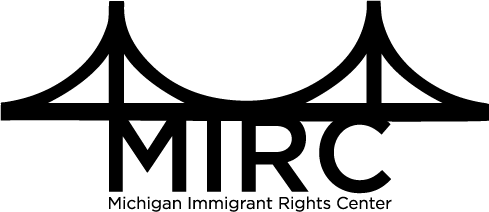Our staff are always working hard to serve our clients and Michigan's immigrant communities. We encourage appointments at our offices. You can call us at (734) 239-6863 between 9:00 a.m. and 5:00 p.m. with questions or contact your advocate to discuss your case. Immigrant workers with questions about employment issues can call our farmworker and immigrant worker rights hotline at 1-800-968-4046.
Nuestro personal estan trabajando para servir a nuestros clientes y las comunidades de inmigrantes de Michigan. Puede llamarnos al (734) 239-6863 desde las 9:00 a.m. hasta las 5:00 p.m. con sus preguntas o llamar a su abogado para hablar sobre su caso. Trabajadores con preguntas o dudas sobre sus derechos laborales o quejas del empleo pueden llamar al 1-800-968-4046.
Conozca Sus Derechos / Know Your Rights
Know Your Rights with Immigration Enforcement
Learn how to lead a family preparedness and KYR workshop:
- Watch MIRC's “Train the Trainer” Video
- Powerpoint slides for “Know Your Rights” presentation (in English and Spanish)
Share with immigrant communities:
- MIRC Know Your Rights & Family Preparedness 5 minute videos - English and Spanish
- Preparing Your Family Guide - English, Spanish, Arabic, French, and Bangla trifold
- Available in PDF, or if you would like to order printed copies go to www.tinyurl.com/orderguides
- Arabic version coming soon
How can I find information on someone who has been detained in Michigan?
- online detainee locator. Search requires full name, date of birth, and country of birth OR A# and country of birth.
- Vinelink. With the exception of a handful of county correctional facilities, almost all jurisdictions in Michigan can be searched using this simple-to-use website. This website is often updated sooner than the ICE online detainee locator. Search can be performed by name only.
updated 4/20/2017
